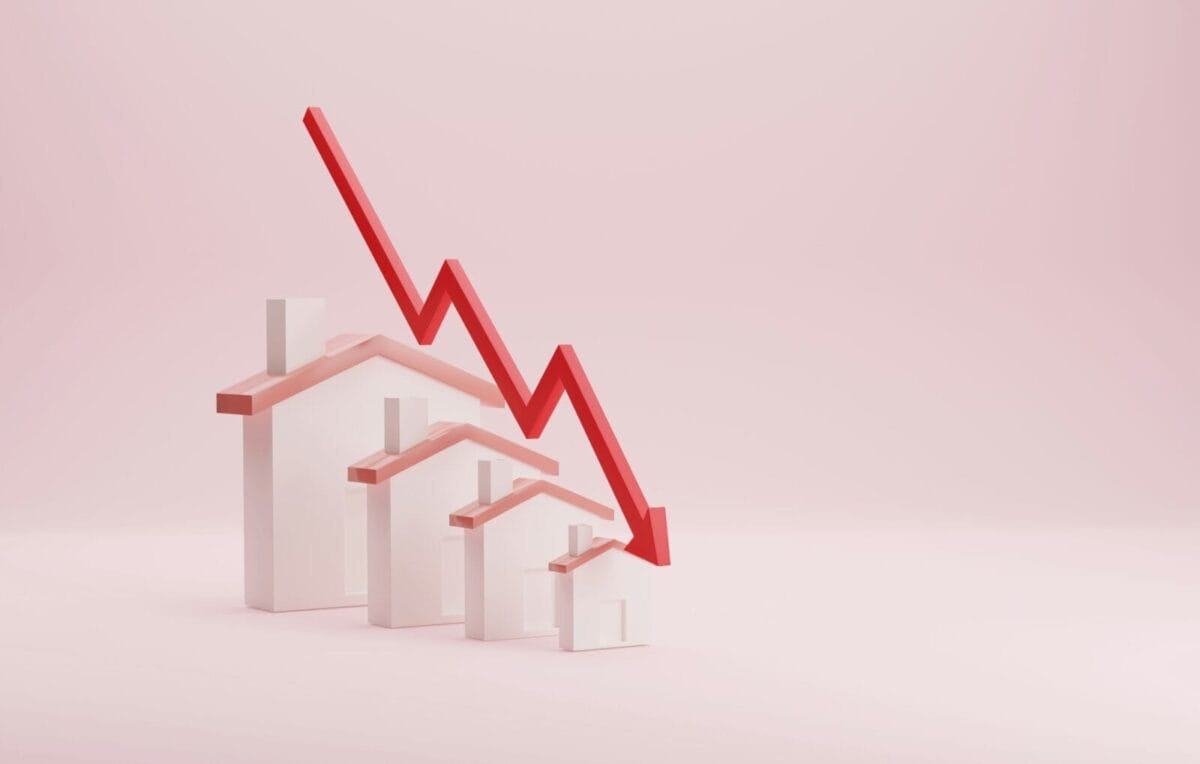By Clive Scrivener – Partner, Scrivener Tibbatts Ltd
The leasehold property market has been under significant scrutiny in recent years, leading to changes and proposed reforms that could impact both buyers and sellers.
Leasehold, whereby ownership is limited to a set number of years (rather than in perpetuity in the case of freehold) has faced criticism due to complicated legal structures and sometimes unfair practices. If you’re considering buying or selling a leasehold property, it’s essential to understand what has changed recently and what could change in the future.
What’s changed in the leasehold property market?
1. Ban on new leasehold houses: one of the most significant changes in the leasehold property market is the government’s decision to ban the sale of new leasehold houses. This change was a response to concerns about unfair practices, such as charging high ground rents and imposing onerous clauses within the leases. Developers will no longer be allowed to sell new-build houses as leasehold, although this ban does not extend to flats, which will continue to be sold on a leasehold basis.
2. Ground rent reforms: the Leasehold Reform (Ground Rent) Act 2022 was a key change aimed at reducing the financial burden on leaseholders. Under this 2022 act, ground rents in new residential leases are set at zero (‘a peppercorn’). This eliminates the potential for escalating ground rents, which have been a significant issue for leaseholders in the past. If you’re buying a lease granted before 30 June 2022, it’s crucial to check whether the lease you are buying includes a ground rent and how this rent might be reviewed over the term of the lease.
3. Lease extensions and collective enfranchisement: the Leasehold and Freehold Reform Act 2024 will make it easier and potentially cheaper for leaseholders to extend their leases or collectively purchase the freehold of their building. Extending a lease will still be costly and a complex process and professional advice will be needed, particularly if the remaining term on the lease is short. The government has announced plans to simplify and reduce the cost of lease extensions, allowing leaseholders to add up to 990 years to their lease with no ground rent. These changes provide greater security for leaseholders and will enhance the value of the property.
4. Increased transparency and fairness: the government and regulatory bodies have introduced measures to increase transparency in the leasehold sector. For example, conveyancers are now required to provide more detailed information upfront, including the length of the lease, service charges, and ground rent details. These measures are designed to protect buyers from unexpected costs and complications after purchasing a leasehold property.
What’s set to change in the future?
1. Abolition of ground rents for existing leases: while the ground rent reforms currently apply to new leases, there are ongoing discussions about extending these changes to existing leases. This could mean that leaseholders who are already paying ground rent may see their ground rent reduced or abolished in the future. If you’re a leaseholder or considering
purchasing a leasehold property, staying informed and obtaining professional advice about these potential changes is crucial, as they could impact your financial obligations.
2. Commonhold revival: the government has committed to reviving the commonhold system, an alternative to leasehold ownership that gives flat owners more control over their building. Commonhold allows homeowners to own their flats in perpetuity, with shared responsibility for communal areas, rather than being subject to a third-party freeholder. While commonhold has not been widely adopted in the UK, reforms aimed at making it the default tenure are on the horizon. This could eventually lead to a shift away from leasehold arrangements for flats.
3. Further leasehold reforms: the government has committed to a comprehensive overhaul of the leasehold system, with additional reforms expected in the coming years. These reforms may include further simplifications to the process of buying the freehold or extending a lease, as well as additional protections for leaseholders. While specific details are still under discussion, it’s clear that the leasehold landscape is set to continue evolving.
4. Impact on property values and market dynamics: as these changes take effect, the leasehold property market may experience shifts in property values and market dynamics. Buyers may become more cautious when purchasing leasehold properties, particularly if they are aware of potential future changes. Conversely, properties with favourable lease terms (e.g., long leases with zero ground rent) may become more attractive and maintain higher values. Sellers may need to be more transparent and prepared to address any concerns potential buyers have regarding existing leases.
Advice for your clients:
· For buyers:
o Understand the lease terms: before committing to a purchase, ensure you fully understand the lease terms, including the length of the lease, ground rent obligations, and any service charges. Seek legal and valuation advice to avoid any unexpected costs or complications.
o Check for upcoming reforms: stay informed about ongoing and upcoming leasehold reforms, as these could impact your financial responsibilities and property value in the future.
o Consider the long-term implications: think about the long-term implications of purchasing a leasehold property, particularly if the lease has a relatively short term remaining. Short leases can be more expensive to extend and may affect the property’s resale value.
· For sellers:
o Be transparent: provide potential buyers with all relevant information about the lease, including the remaining term, ground rent, and any planned changes to service charges. Transparency can build trust and speed up the sale process.
o Consider lease extension: if your lease has a short term remaining, consider extending it before selling. A longer lease can make your property more attractive to buyers and increase its value.
o Stay informed: keep an eye on any changes to leasehold laws that could affect your ability to sell your property. Proactively addressing any potential issues can help you avoid delays and ensure a smoother transaction.
Conclusion
The leasehold property market is undergoing significant changes, with recent reforms due to provide greater protection and transparency for leaseholders. These changes are on the horizon. However, we do not know when they will be implemented. Once they are, they could reshape the leasehold market, specifically the market for short leases and ground rent investments. Whether you’re buying or selling a leasehold property or a freeholder who has invested in ground rents, staying informed and seeking professional advice is essential to navigate this evolving landscape successfully. By understanding the current regulations and anticipating future reforms, you can make more informed decisions and protect your interests in the leasehold market.















